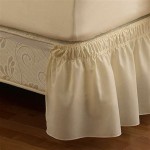King vs. Queen Double Bed: Choosing the Right Size for Your Needs
Selecting the right bed size is a crucial decision impacting sleep quality and bedroom aesthetics. This article compares king and queen-sized beds, outlining the dimensions, advantages, and disadvantages of each to assist consumers in making an informed choice.
Dimensions and Space Requirements
A standard king-size bed measures 76 inches wide and 80 inches long, offering ample sleeping space for two individuals. A standard queen-size bed, on the other hand, measures 60 inches wide and 80 inches long, providing a more compact sleeping area. When considering bed size, it's essential to factor in the bedroom's dimensions. A king-size bed requires a larger room to accommodate its substantial width and allow for comfortable movement around the bed. A queen-size bed is a more space-saving option, suitable for smaller bedrooms.
Sleeping Comfort and Personal Space
King-size beds provide significant personal space, allowing individuals to sleep comfortably without disturbing their partners. This expansive sleeping area is particularly beneficial for couples who prefer more room to stretch out or individuals who tend to move around during sleep. Queen-size beds, while smaller, still offer adequate sleeping space for two adults. However, couples who value maximum personal space might find a king-size bed more conducive to restful sleep.
Cost Considerations
King-size beds and their accompanying bedding (sheets, blankets, comforters) generally come at a higher price point than queen-size options. This increased cost reflects the larger size and increased material requirements. Consumers should factor in these cost differences when making their decision, considering their budget and the importance they place on a larger sleeping area.
Aesthetics and Bedroom Design
A king-size bed can serve as a prominent focal point in a large bedroom, adding a sense of grandeur and luxury. However, in a smaller room, a king-size bed may overwhelm the space and make it feel cramped. A queen-size bed, with its more compact dimensions, is often a better fit for smaller bedrooms, allowing for a more balanced and visually appealing space.
Lifestyle and Sleeping Habits
Individual lifestyle and sleeping habits are critical factors when choosing between a king and queen bed. Individuals who frequently share their bed with children or pets might find the extra space offered by a king-size bed highly beneficial. Similarly, individuals who tend to toss and turn during sleep will appreciate the greater personal space a king provides. For individuals who sleep alone or couples who prefer a closer sleeping arrangement, a queen-size bed may suffice.
Moving and Logistics
Maneuvering a king-size bed through doorways and hallways can present logistical challenges. Its larger size may necessitate disassembling the frame and box spring for transport, adding complexity to moving. A queen-size bed, being smaller, is generally easier to move and maneuver, making it a more practical choice for those who relocate frequently.
Availability of Bedding and Accessories
While both king and queen-size bedding is readily available, the variety of styles and designs might be broader for queen-size beds. This difference is due to the higher market demand for queen-size bedding. Consumers looking for specific or unique bedding options may find a wider selection available in queen sizes.
.jpg?strip=all)
King Vs Queen Size Beds Differences Comparison And Benefits

King Bed Vs Queen B2c Furniture

King Vs Queen Bed Detailed Mattress Comparison Turmerry

King Vs Queen Bed What S The Difference Amerisleep

King Vs Queen Bed Size Mattress What Is The Difference Nectar Sleep

King Size Vs Queen Beds What Is The Difference Beautiful Homes

The Difference Between A Queen And King Bed Bedinabox

King Vs Queen Bed Size Mattress What Is The Difference

Mattress Size Guide N Standard Dimensions

Bed Dimensions A Guide To The Perfect In Solara Home
Related Posts







